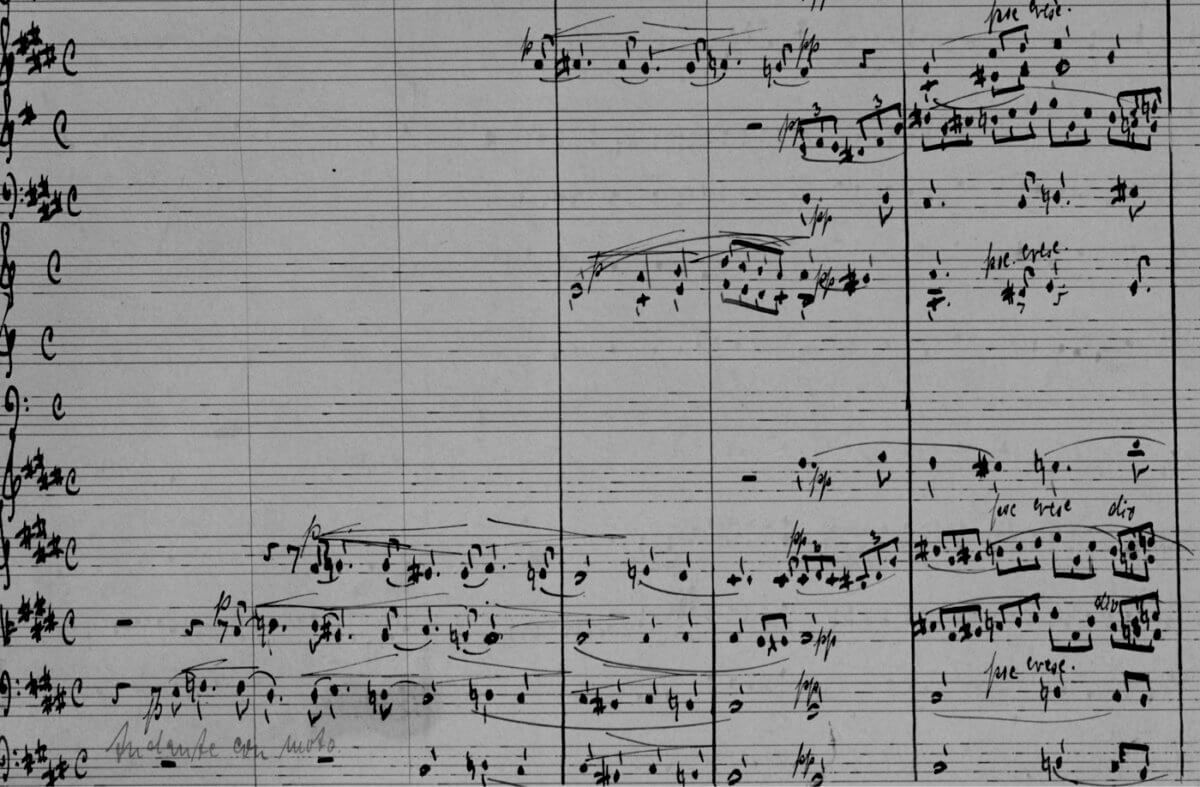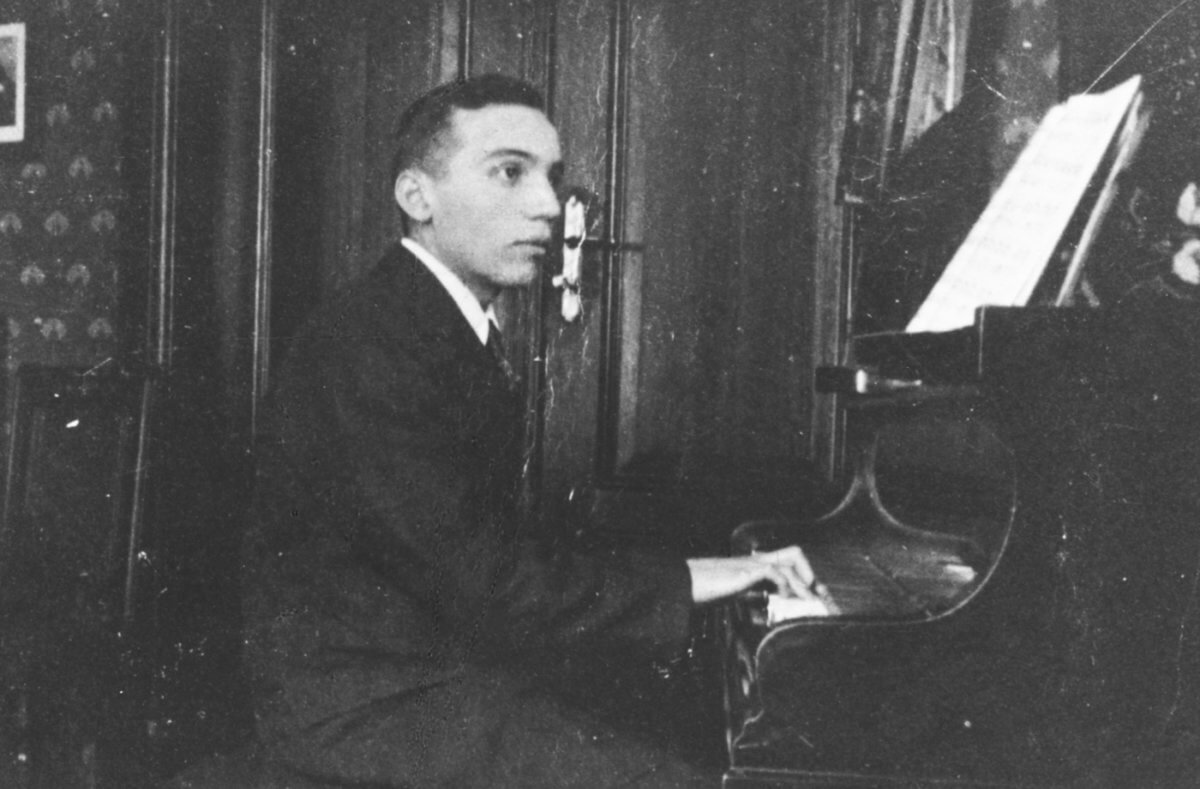Happy End
Work Details
Duration
Full Evening, 45 minutes music
First Performance
2 September 1929, Berlin, Theater am Schiffbauerdamm, Erich Engel, dir., Theo Mackeben, cond.
For information about licensing this work for use, see our online guide
Full Evening, 45 minutes music
2 September 1929, Berlin, Theater am Schiffbauerdamm, Erich Engel, dir., Theo Mackeben, cond.
For information about licensing this work for use, see our online guide
Sung by Lotte Lenya, 1930
Excerpt sung by Lotte Lenya, 1960
Christmas Eve in Bill’s Ballhaus in Chicago. Bill Cracker’s criminal gang discusses past capers. When Bill arrives, he announces that he has killed his arch-rival, Gorilla Baxley. The gang celebrates (). The Lady in Gray (a.k.a. The Fly) enters and outlines the next robbery, giving each man his instructions. She asks the Governor, a gang member, to light her cigarette, the signal that he is expendable. The next scene opens on the street, as Lieutenant Lilian Holiday of the Salvation Army leads the soldiers in song (). Then the Army marches into Bill’s, to the consternation of the gangsters ().They begin a church service; when the gang ridicules Lilian, she continues to preach. Nonetheless, only Bill’s entrance saves her from further insult. When he orders the Army out of the bar, she stays. Then the rest of the gang exits; Bill and Lillian have a glass of whisky together and she hears what sounds like a gunshot from the kitchen. Lilian has a little too much to drink and launches into a risqué song (). Unfortunately, an Army member returns as she finishes. Lilian realizes that he will tell her superiors, but she makes one last effort to convert Bill, telling him he will go to hell. He throws her out of the bar.
The Major orders Lilian to pack up and leave, but he relents after Lilian sings the “Matrosen-Song” again with some crucial changes to the words. Bill enters and praises her evangelical skills. Then the police commissioner comes on the scene; Bill leaves hurriedly. The commissioner interrogates Lilian about a killing that took place in the kitchen of Bill’s establishment. She claims she can’t remember whether she and Bill were alone together in the bar. The commissioner leaves and Bill re-enters to ask what she told the commissioner. He is angry when he realizes she did not give him an alibi. After he leaves, Lilian confesses to the Major, who dismisses her summarily. Sam, a gang member, enters and takes a seat; then Bill returns, drunk. The service begins (). Another Army soldier tries to deliver Lilian’s sermon, but the crowd demands Lilian, and Bill disrupts the service. The Major reproves Bill and tries to keep going (). Bill demands to see Lilian as Sam exits, and the Major calls for another hymn (). Finally the Major admits that Lilian has been expelled. Bill storms out as the congregation sings .
The gang, minus the Governor, who has disappeared, assembles in the bar (). The Fly’s voice is heard from offstage, giving instructions and dispensing alibis for the big heist that night. As the gang exits, Lilian comes in for one more try to save Bill (). Bill is moved but won’t admit it () as the Fly sneaks in the back door and looks on. Bill realizes he has failed to fulfill his assignment as the Fly enters and asks him for a light. Lilian, in despair, resolves to return to the Salvation Army. The gang enters, flushed with success, until they realize that Bill failed to pick up the loot. Then the Fly reveals that she has it, and that Bill must die before he blows the whistle on the gang (). Lilian returns to the Salvation Army, but they spurn her; likewise with Bill when he arrives. Lilian appeals to their Christian spirit, without success, until the gang members enter to finish Bill off. Then the commissioner returns to arrest the gang for bank robbery and Bill for murder. But he fails–the Governor reappears with only a slight wound, and the gang members recite their alibis. Midnight strikes, and the Fly walks in. As she points her gun at Bill, one of the Salvation Army members recognizes her as his long-lost wife. She donates the loot to the Salvation Army as Bill and Lilian announce their engagement, and the gang decides to take over the bank they’ve just robbed and merge it with the Salvation Army (“Obacht, gebt Obacht” reprise).
Kurt Weill Edition, Series I, Volume 6
(full score, complete book and lyrics, critical report)
English text and lyrics
Samuel French, SF 10019
Piano-vocal score
(German-English, 1976), Universal Edition, UE 11685
Study score
(German-English, 1981), Universal Edition, UE 17243

